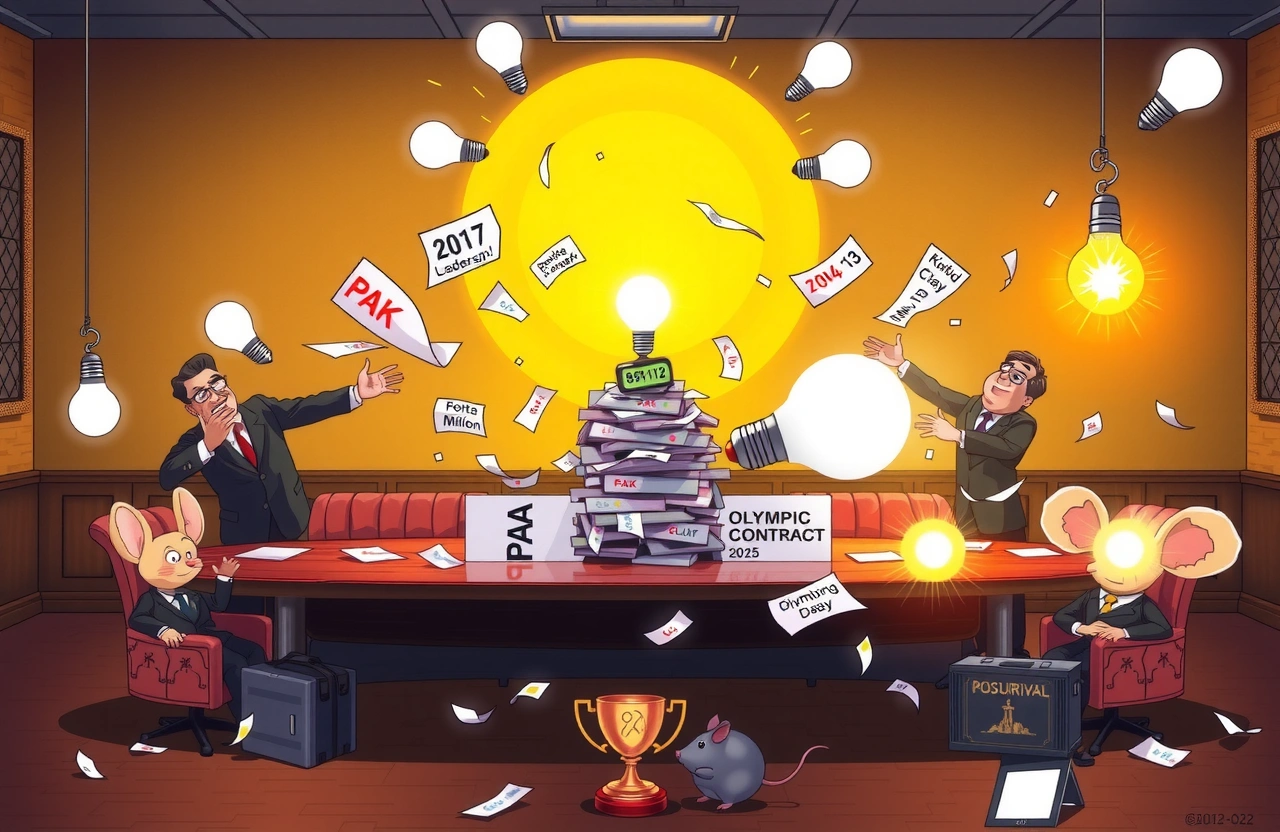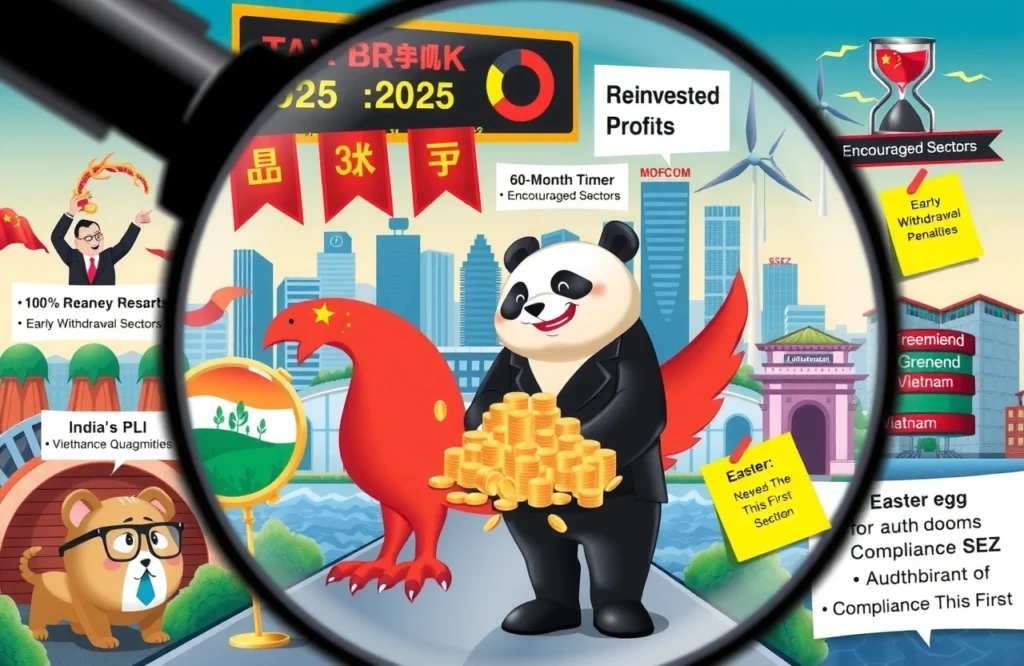Corporate Harmony Shatters at Lighting Pioneer
They began as university classmates united by ambition. Thirty years later, the founders of PAK Lighting find themselves locked in a bitter boardroom battle threatening China’s once-dominant lighting manufacturer. At the June 27 shareholder meeting, opposing factions clashed spectacularly over leadership control, publicly exposing deep fractures that emerged after profits cratered. Persistent boardroom infighting has obliterated 80% of market value since 2017’s peak.
The Boardroom Fracture Exposed
Chairman Vote Reveals Irreconcilable Rift
When PAK Lighting convened its pivotal June 27 board meeting, proceedings rapidly escalated into outright confrontation. Two resolutions mirrored factional divides:
- Proposal 1: Re-elect Chairman Zhang Yutao (张宇涛). Received firm support from largest shareholder Lin Yan (林岩), who declared management continuity essential.
- Proposal 2: Appoint Zhang Xianqing (张贤庆) as chairman. Championed by founder Chen Songhui (陈松辉), demanding rotational leadership.
The vote outcome was unprecedented: Zhang Xianqing received only Chen Songhui’s conditional support for rotation, while three directors abstained entirely. Boardroom infighting spilled into public view, highlighting failures to resolve governance disputes internally.
Strategies Behind Power Play
Zhang Xianqing framed his leadership bid around fiscal mismanagement:
- Revenue fell consistently under Zhang Yutao’s tenure
- Administrative expenses increased despite declining sales
- 2025 Q1 financials showed RMB 15.31 million losses
Chen Songhui defended rotational leadership as procedural fairness, while Lin Yan maintained prioritizing stability amid market turbulence. Both opposing camp proposals failed resoundingly, demonstrating entrenched positions driving boardroom infighting.
From Campus Pioneers To Industry Leaders
The Engineering Breakthrough
PAK Lighting’s origin traces to Guangzhou laboratories where Zhang Yutao (张宇涛), Zhang Xianqing (张贤庆), and Lin Yan (林岩), 1987 radio engineering graduates from South China University of Technology, began research. Chen Songhui (陈松辉) joined in 1993, forming the ‘Four Musketeers’ enterprise.
Their breakthrough electronic ballast—key component for fluorescent lighting—ended foreign manufacturers’ monopoly. Establishing Guangdong PAK Corporation in Guangzhou farmland, they rapidly scaled production:
- 1993: Registered ‘PAK’ trademark
- 1996: Launched ‘Aurora’ brand
- 2000: Merged brands as ‘PAK Lighting’
Market Dominance Achieved
The company leveraged strategic milestones:
- Secured exclusive lighting contracts for 2008 Beijing Olympics venues
- Lit Shanghai World Expo’s core facilities in 2010
- Pioneered LED adoption in architectural lighting
2017 marked their ultimate triumph: RMB 1.4 billion raised through successful Shenzhen IPO. Throughout, maintaining unanimous shareholder agreement fostered trust between classmates.
United Front Fractures
The Power Transfer Experiment
Cracks appeared in 2020 when they dissolved their Joint Action Agreement. Zhang Yutao (张宇涛) initiated generational transfer:
- Transferred 5.56% stake to son Zhang Jun’e (张钧锷) in May 2022
- Later moved 4% stake indirectly via Guangjin Starry Sky Fund
Other founders perceived threats to influence:
- Zhang Xianqing transferred 1.98% shares to Guangshen Securities fund
- Chen Songhui aggressively accumulated shares, pushing ownership from 8.79% to 9.34% since April 2025
Political Eruptions Begin
Deteriorating relations manifested materially:
- December 2024: Chen Songhui cast sole opposing board vote against organizational changes, warning: ‘This creates dual management and ambiguous responsibilities’
- First Quarter 2025: Operating losses reached RMB 15.31 million
- May 2025: Dividend distribution delayed, eroding investor trust
With no controlling shareholder—Zhang family alliances control 22.29% versus rivals’ 21%—boardroom infighting paralyzed strategic decision-making.
Financial Unraveling Accelerates
Operating Performance Collapses
Since shareholder alignment terminated:
- Annual revenues fell 23% from 2021’s RMB 2.7 billion
- 2024 profits crashed 76% year-on-year
- Cumulative 2021-2024 net profits totaled RMB 375 million—just 40% of 2017-2020 earnings
Market headwinds exacerbating troubles:
- Global semiconductor lighting sector contracted 7.6% yearly (China Semi Lighting Association)
- Domestic real estate downturn shrinking core customer base
Market Capitalization Obliterated
Since March 2017 peak:
- Share price fell consistently from RMB 65 to RMB 13 range
- Market capitalization plunged 80%, erasing RMB 13.6 billion value
Persistent boardroom infighting deters possible acquisition lifelines despite substantial intellectual property portfolio.
Survival Prospects Dwindle
Industry analysts assess PAK Lighting’s prognosis as concerning without leadership compromise. External pressures require urgent unified action:
- Market consolidation intensifying among Top 5 lighting companies
- Innovation investments lagging in smart lighting technologies
- Overseas expansion stalling amid governance distractions
The founding classmates confront contradictions between preserving their legacy versus paralyzing conflict. Can Zhang Yutao (张宇涛) and Zhang Xianqing (张贤庆) reconcile divisions? Will shareholders force leadership mediation?
Corporate governance experts suggest restructuring board representation through external appointments could mitigate ongoing boardroom infighting. Otherwise, China’s pioneering lighting manufacturer risks becoming another textbook governance failure.
What company would you invest in during boardroom crises? Share your governance insights @YuanTrends #CorporateGovernance.




